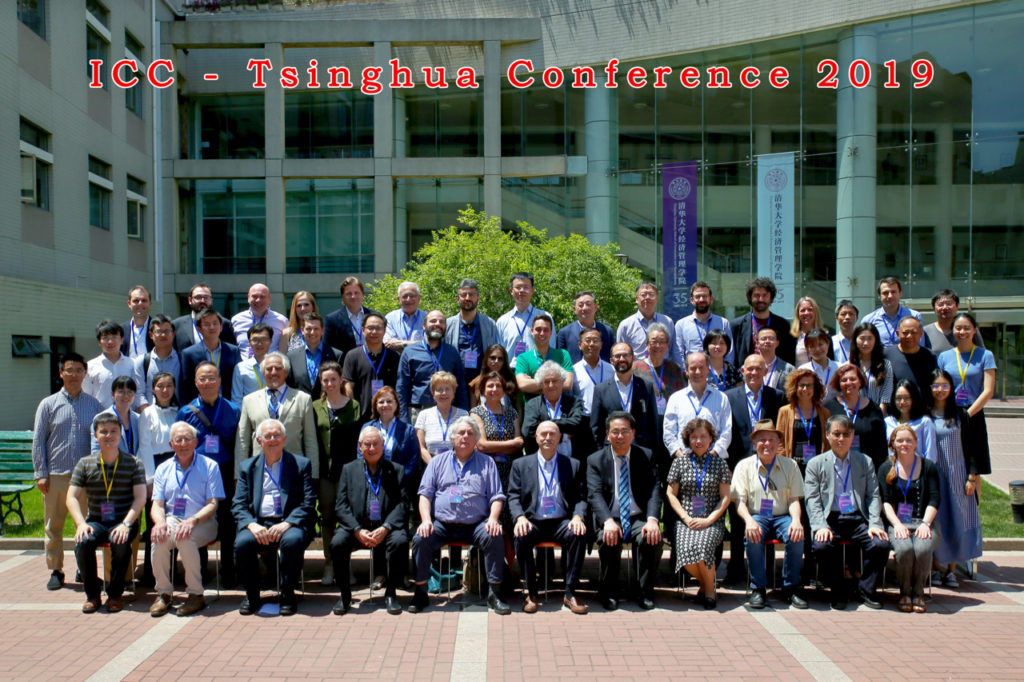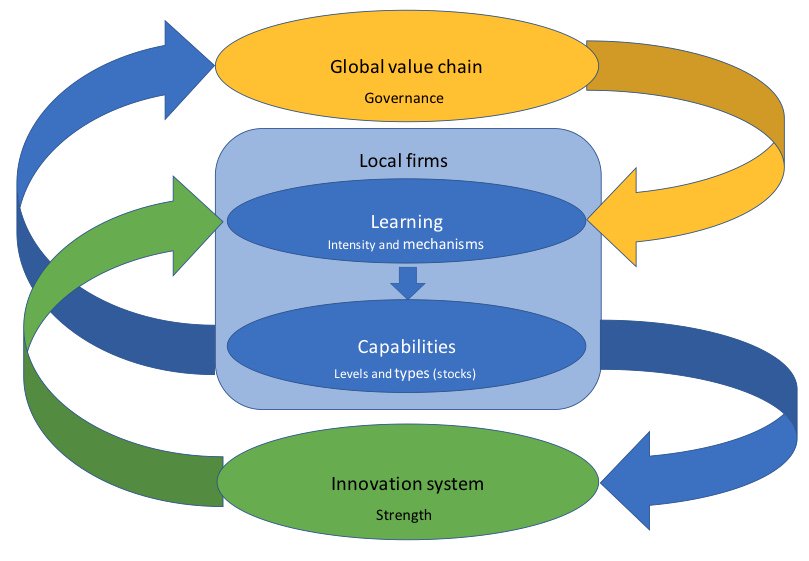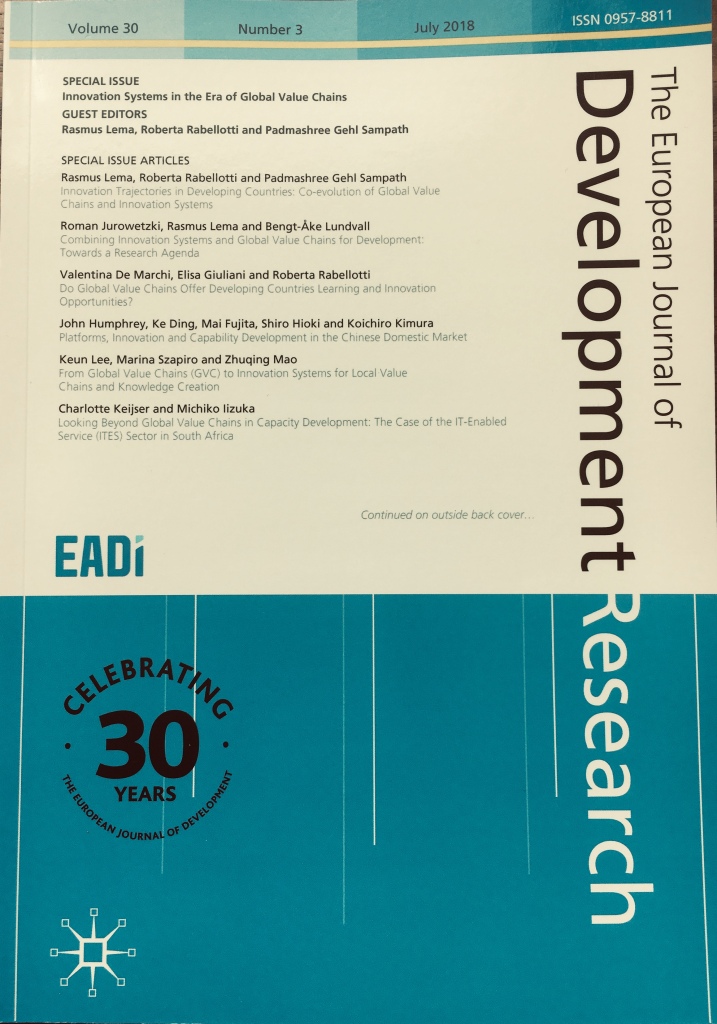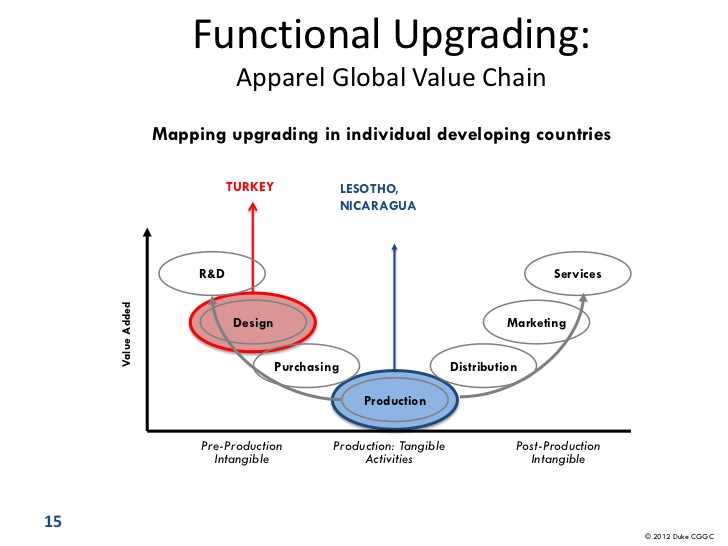In and out. Internet between public utility, inequalities and opportunities.
On May 2023 I partecipated at a workshop organized by Fondazione Feltrinelli to talk about the digital gap in developing countries.
in Presentations Tags: Developing Countries, Digital gap, Digital technologies, latecomer countries

In and out. Internet between public utility, inequalities and opportunities.
On May 2023 I partecipated at a workshop organized by Fondazione Feltrinelli to talk about the digital gap in developing countries.
in Media, Presentations, Videos Tags: Africa, Developing Countries, Foreign Direct Investments, Global Value Chain, Vietnam
Here is my interview on my paper on local sourcing in developing countries, published in World Development.
in Featured Publications, Journal Articles Tags: Developing Countries, Global Value Chain, Innovation, Innovation Systems

With Rasmus Lema and Carlo Pietrobelli I have contributed to the Handbook on Global Value Chains with a chapter presenting a new conceptual framework for investigating how GVCs and ISs jointly contribute to innovation in developing countries. It can be downloaded here.
in Featured Presentations, Presentations Tags: Developing Countries, Global Value Chain, Innovation Systems

On May 2019 I presented a paper on the co-evolution of GVCs and Innovation Systems at the ICC -Tsinghua University Conference held in Beijing. I also presented the same paper at SASE Conference at the New School in New York in June.
Here is my presentation.
in Featured Presentations, Presentations Tags: Developing Countries, Global Value Chain, Innovation, Innovation Systems

in Articles, Media Tags: Developing Countries, Global Value Chain, Innovation Systems

New post on the LSE Blog on Global Investments and Local Development with Padmashree Gehl Sampath and Rasmus Lema.
in Featured Publications, Journal Articles Tags: Catch up, Developing Countries, Global Value Chain, Innovation Systems

In this article co-authored with Rasmus Lema and Padmashree Sampath, we investigate how combining global value chain and innovation system approaches can help to foster an understanding of the possible trajectories that learning and innovation may take in developing countries.
Free download here
in Featured Publications, Journal Articles Tags: Developing Countries, Emerging Countries, Global Value Chain, Innovation

With Valentina De Marchi and Elisa Giuliani I published an article in the European Journal of Development Research. The paper offers s a systematic review of the literature on developing country GVCs to investigate the learning channels used by local firms, both within (firm level, collective level) and outside of these value chains (i.e. external sources of learning), and the extent to which this activity promotes innovation.
Here there is a free to view link to the article
in Featured Presentations, Presentations Tags: Developing Countries, Human Rights, MNEs, Multinationals

On the 19th of June with Elisa Giuliani we presented a paper co-authored with Daniele Guariso e Federica Neri at the workshop on Rising Powers and Labour Standards in Global Production Networks at the University of Manchester.
Here is the presentation.
in Journal Articles, Publications Tags: Developing Countries, Industrial development
The aim is to elaborate a framework for analysing policies and instruments adopted by international cooperation to promote the development of the private sector in developing countries. First of all, the paper presents a brief overview of donors’ dominant approach in the past two decades and then an analysis of the most recent trends in this field. Both concerning non financial and financial services to the firms, there is a wide consensus on the need of strenghtening local supply institutions, promoting their sustainability and effectiveness. Donors should sustain on the supply side, the development of a well functioning and transparent market for services, avoiding interventions which generates long term distortions and on the demand side should help firms in identifying their needs and the best way to satisfy them within the market.
in Books, Publications Tags: Clusters, Developing Countries, Industrial development

This book presents studies of clusters in developing countries, showing how much these organizational model is diffused and how it contributes to industrial development.
in Books, Publications Tags: Clusters, Developing Countries, Industrial development, Small and Medium Enterprises

This is a collection of articles on industrial districts in developing countries. It analyses the functions and advantages of clusters and networks for small enterprises in developing countries. In the opening chapter the editors describe different types of clusters and networks and compare the diverse forms of external economies and co-operation effects derived from them. Taking a multidiscplinary approach, they point out it is trust that is the social basis for positive effects of clustering and networking, which are often sources of co-operation and technology diffusion for small enterprises in developing countries.
Read the book here